John Hurrell – 22 August, 2009
Godkin's and Young Sun Han's curation is obviously eccentric: there is little thematic unity in imagery or method. That doesn't really matter for this is an array of samples - an assortment to be dipped into.
The ten artists that make up this group show are a mix from Antoinette Godkin‘s own ‘stable’ and artists from her adjacent neighbour gallery City Art Rooms - so ‘Mesh‘ as a title reflects a blending of these two resources. Many of the abstract works selected seem to indicate Godkin’s own taste for holistic images with an overall ‘field’ composition. However there are figurative works included (photography and watercolours), and others where abstraction/figuration are self-consciously combined.
Godkin’s and Young Sun Han’s curation is obviously eccentric: there is little thematic unity in imagery or method. That doesn’t really matter for this is an array of samples - an assortment to be dipped into.
There is some unusual photography. High in one corner Lisa Benson has three delicate geometric ‘drawings’ on light sensitive paper, two of which are fixed, the other not - it keeps changing as the show progresses. Jennifer French has two images quite unlike the static documentation she is known for: two Futurism-like studies of a moving rock guitarist taken in artist Peter Roche’s club The Ambassador. They are textured in their dense use of blurry motion to create densely patterned traces, making the musician look like a nautical monster from a Sci-Fi film.
Clinton Fein has used models and props to recreate the notorious photos of detainees being tortured by American soldiers at Guamtánamo Bay Detention Camp. Infused with a red light these disturbing works are noble in intention but trite in concept - as if a narrative built around moral indignation is in of itself a prerequisite for sophisticated art.
The three sensitively nuanced watercolour works by Brenda Nightingale feature both a horizontal and a vertical format: the horizontal row focussing on images of murder and mayhem; the vertical column on more Rodinlike figure studies. Oddly the latter have a sense of compression and formal drama, whereas the former seem dissipated in their looser placement of elements.
Of the holistic works mentioned earlier, Lianne Edwards’ pinned butterflies cut out of used postage stamps is unfortunately similar to Peter Madden in its method and content, despite him not being interested in stamps at all. Monique Jansen has an exquisite pencil drawing based on a complex grid structure that maintains a strange tension throughout, while Matthew Dowman’s softly mottled patterns seem akin to fabric design or Mark Tobey, without much sense of focussed dynamic. Gill Gatfield’s ‘fields’ of magnetised pins use chance and look like fields, literally. They are a stainless steel version of cut grass or spiky straw, and oddly creepy with their sense of chilling menace. A high industry version of Pollock perhaps.
The strangest work in the exhibition is Davide Balliano’s treatment of pages taken from very old art history books, that feature reproductions of Flemish and Italian masters. In a manner connected to John Baldesarri’s film photographs he has placed black circles over the subjects’ faces and ruled downward vertical parallel lines. He has also covered over portions of clothing so that these mysteriously surreal hybrids tease viewers with scholarly aspirations.
The Jansen and French images in this exhibition are standouts. Worth making a small pilgrimage to Lorne Street for.
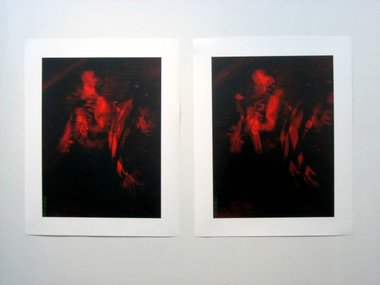
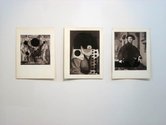
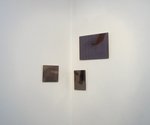
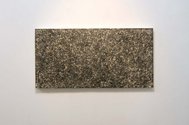

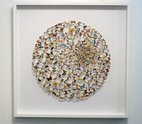
 Two Rooms presents a program of residencies and projects
Two Rooms presents a program of residencies and projects Advertising in this column
Advertising in this column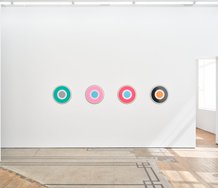
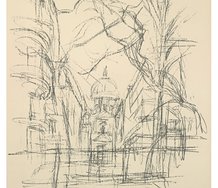
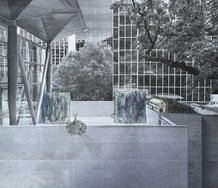
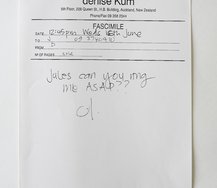
This Discussion has 0 comments.
Comment
Participate
Register to Participate.
Sign in
Sign in to an existing account.